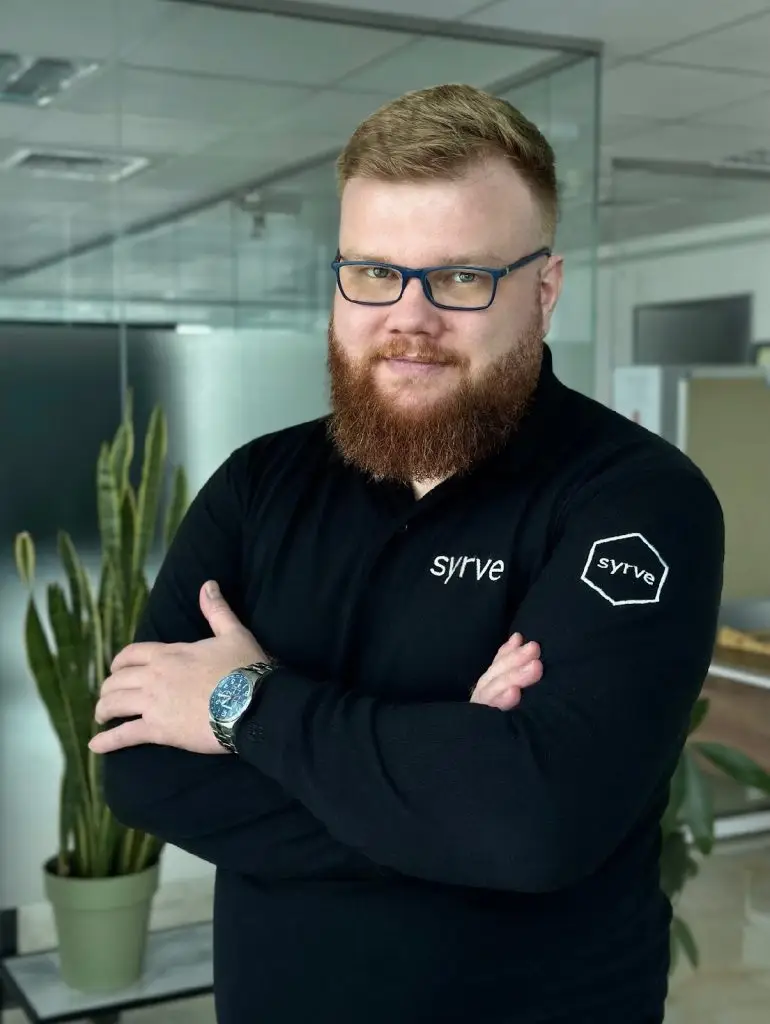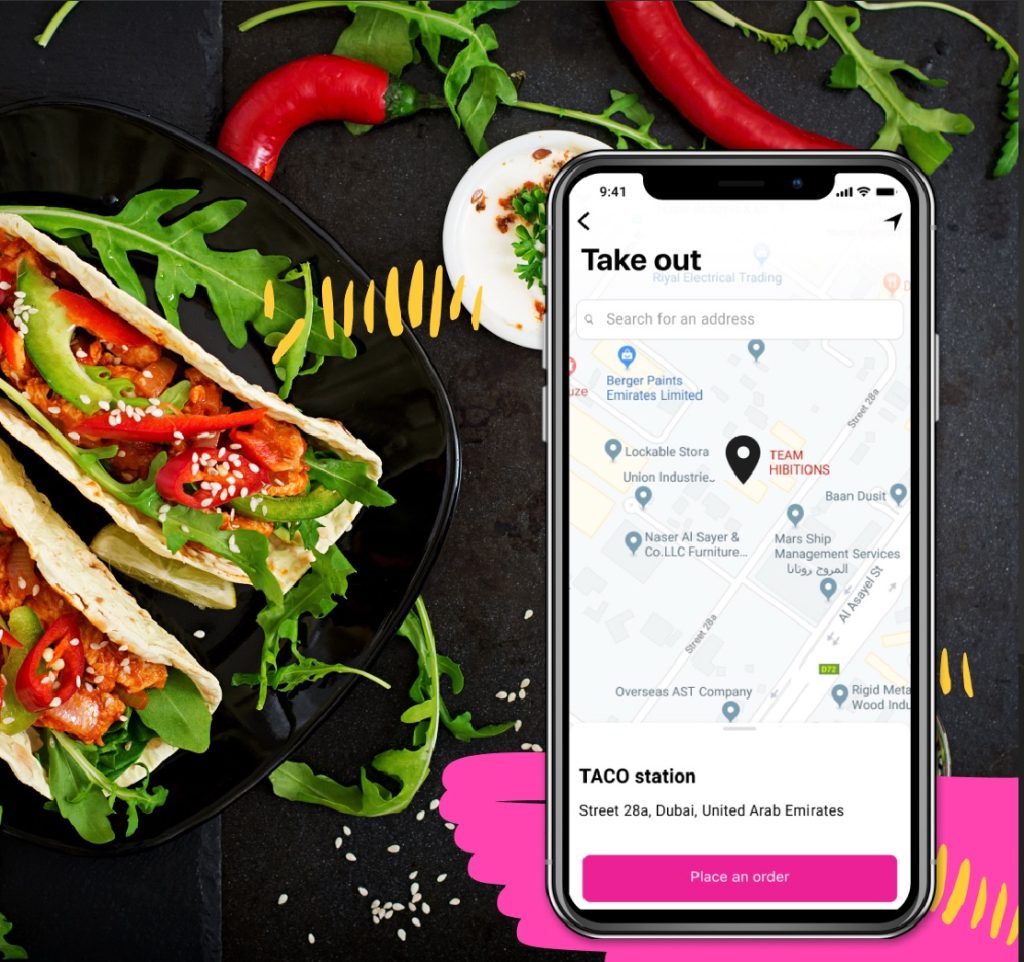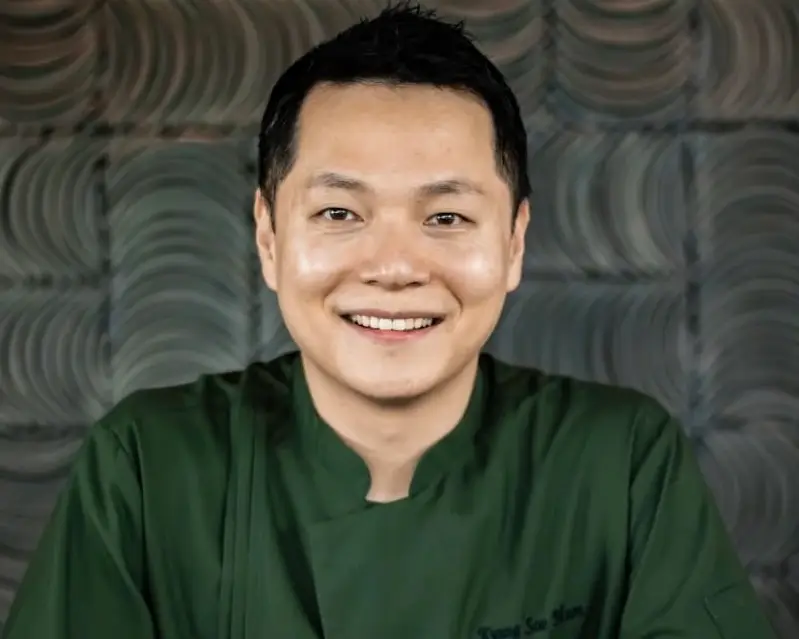Dubai, UAE: Running a restaurant in Dubai is exhilarating, but let’s be honest, it comes with its fair share of headaches – from managing inventory to keeping up with online orders.
But, what if technology could take some of that pressure off?
We spoke to Alexander Ponomarev, CEO of Syrve MENA, a leading restaurant tech provider, to explore how smart tools like AI are surprisingly transforming the daily grind for F&B businesses in our region – offering benefits you might not even have thought of.
With a significant footprint of over 2,200 customers across the MENA region and a global presence spanning 57 countries through 9,300 restaurants, Syrve’s insights into the evolving tech landscape are invaluable.

Unexpected Wins: AI and Automation Beyond the Basics
Syrve MENA’s reach extends across a diverse range of F&B businesses, many of whom are leveraging AI-driven forecasting – a core feature of the Syrve platform. This technology provides granular, hourly predictions for sales and orders, even factoring in weather patterns for optimized planning. According to Ponomarev, the benefits observed by operators have been significant and often unexpected:
“Syrve MENA is a leading provider of all-in-one POS and restaurant management software in the Middle East, with over 2,200 customers in the MENA region and an overall global presence in 57 countries through 9,300 restaurants. A significant part of Syrve’s customer base in MENA uses AI-driven forecasting, which is a part of the Syrve product offering. This technology provides daily, highly accurate sales and order insights that can be tailored by hour and order type and even integrates weather forecasts to help with planning. Benefits observed by operators include: Improved profit margins and forecast accuracy. Enhanced customer satisfaction and sustainable practices. Tangible reductions in food waste and better inventory management. For example, a popular fast-food chain using Syrve’s AI reduced food waste by 10% and improved inventory management by 15% (Link) Automation of up to 80% of daily routines, freeing up staff for more strategic tasks and improving operational efficiency.”
Navigating MENA’s Unique F&B Landscape
The Middle Eastern F&B sector presents its own set of complexities, from managing multiple concepts to catering to diverse payment preferences and operating within a fast-paced environment. Ponomarev highlights how Syrve’s technology is specifically designed to address these nuances, setting it apart from generic global solutions:
“Syrve’s platform is tailored for any type of restaurant operation you could meet in MENA, supporting single and multi-concept F&B businesses, from independent venues to large chains. Its solutions include: Robust API integration, which 89% of UAE restaurants surveyed found to be the most impactful digital tool, enables seamless connections with delivery services, payment gateways, and e-commerce partners. Support for multiple payment options, including cash, cards, and mobile wallets, aligns with local preferences. Multilingual support and regional offices (e.g., Dubai, Cairo) to ensure localised service and compliance with both international and local regulations.”

Quantifiable Efficiency: Streamlining Daily Operations
The claim that Syrve automates up to 80% of daily restaurant routines might seem ambitious, but Ponomarev provides a concrete example of its tangible impact:
“Yes. After adopting Syrve’s AI-driven sales forecasting, one of Syrve customers a major fast-food chain in the region managed to reduce its food waste by 10% and improved inventory management accuracy. Syrve’s inventory management tools provide real-time tracking, faster inventory checks, and more accurate ordering, helping businesses avoid waste and ensure optimal stock levels across locations.”
Fostering Collaboration: The MENA Restaurant Community
Recognising the power of shared knowledge, Syrve powered the “MENA Restaurant Community,” a collaborative platform for F&B professionals. Ponomarev explains its purpose and the valuable insights it generates:
“The MENA Restaurant Community, founded as Syrve initiative along with industry enthusiasts and contributors,, is a collaborative platform that brings together F&B industry professionals to share knowledge, discuss challenges, and promote innovation. The community regularly hosts events, such as industry panels and business breakfasts, where topics like AI, franchise management, and sustainability are discussed. Feedback and insights from these gatherings inform Syrve’s ongoing product development and operational support strategies.”
Driving Sustainability Through Technology
In an increasingly eco-conscious world, Syrve’s technology also contributes to more sustainable practices within the F&B industry:
“Syrve’s AI-driven forecasting and inventory control tools help restaurants reduce food waste by limiting overstocking and improving order accuracy. The company is publicly committed to sustainability, as highlighted in its participation in the COP28 climate summit. Syrve’s cloud-based technology also enables more efficient resource use and supports eco-friendly business practices.”
The Next Tech Frontier: Looking 3-5 Years Ahead
Beyond the current advancements in AI and automation, Ponomarev offers his vision of the next wave of technologies that will reshape restaurant operations in the MENA region:
“In my opinion I foresee Iot-enabled smart kitchens, blockchain-based supply chain tracking, and advanced biometric interfaces as key future technologies. These innovations aim to: IoT: Monitor equipment performance and energy use in real time, enabling predictive maintenance (e.g., reducing downtime by 50% in trials). Blockchain: Enhance ingredient sourcing and food safety transparency, addressing regional concerns about halal certification and traceability. Biometrics: Expand beyond Face ID to voice-activated systems for Arabic-language order processing, reducing service errors by 18% in early pilots.”
Syrve is actively preparing for this evolution:
“Investing in R&D for predictive analytics and IoT integrations. Expanding its API ecosystem to support third-party tools (e.g., delivery robots, loyalty programs).”
Seamless Integration in the Age of Online Ordering
The proliferation of online ordering and delivery platforms presents both opportunities and challenges. Ponomarev explains how Syrve ensures seamless integration and data synchronization across these diverse channels, while also highlighting the pain points operators often face:
“Syrve ensures integration via: Unified Workflow: This workflow aggregates orders from 15+ platforms (e.g., Talabat, Deliveroo) into a single dashboard, eliminating manual re-entry. Real-Time Sync: Two-way API integrations sync menus and order statuses automatically, reducing errors by 25%. Delivery Optimisation: Tools like route mapping and driver tracking cut delivery times by 20% for clients like Vinny’s Pizzeria in Cairo. Pain Points for Operators: Fragmented Systems: Managing multiple platforms led to duplicated orders and inventory mismatches. Staff Overload: Manual reconciliation of delivery data consumed 12+ hours weekly per venue before automation.”
Prioritizing Data Security and Privacy
In an era of heightened awareness around data protection, Ponomarev emphasizes the robust security measures Syrve employs:
“Syrve uses advanced security protocols, including Transport Layer Security (TLS) encryption for all data sent to the Syrve cloud. Its data centres are ISO 27001 certified for information security, and the company adheres to GDPR and local regulations. Biometric data for Face ID is encrypted and stored as hash authentication parameters, not raw biometric images, ensuring compliance and security.”
Strategic Regional Growth: Understanding Market Dynamics
Syrve’s significant expansion across MENA, including the establishment of the Cairo office, reflects a strategic approach to a diverse market. Ponomarev outlines the key considerations and unique dynamics encountered in different countries:
“Strategic Drivers: Market Readiness: UAE and Saudi Arabia’s tech-forward F&B sectors prioritised automation, while Egypt’s growth potential demanded localised training. Cost Efficiency: Cairo’s lower operational costs allowed Syrve to offer tiered pricing for SMEs, boosting Egyptian adoption by 200% in 2024. Market Dynamics: UAE: High competition and demand for premium tech (e.g., Face ID adoption in 15% of venues). Saudi Arabia: Focus on large-scale concepts (e.g., The Market Island, serving 5,000+ guests) requiring halal-certified modules. Egypt: Emphasis on affordability and education, with Syrve providing Arabic-language training for the clients once requested.”



